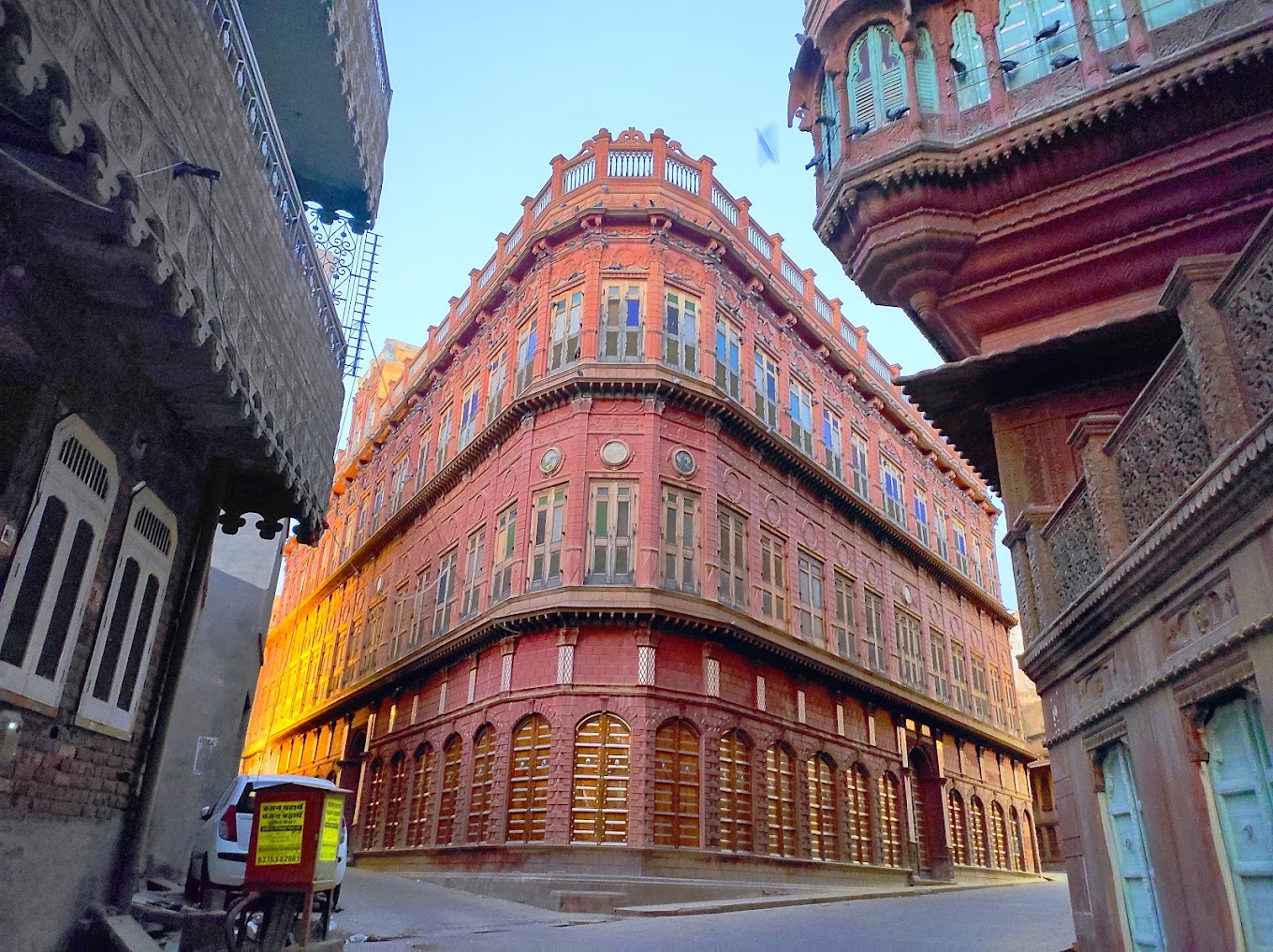Share this link via
Bikaner is a city in the north Indian state of Rajasthan, east of the border with Pakistan. It's surrounded by the Thar Desert. The city is known for the 16th-century Junagarh Fort, a huge complex of ornate buildings and halls.
Within the fort, the Prachina Museum displays traditional textiles and royal portraits. Nearby, the Karni Mata Temple is home to many rats considered sacred by Hindu devotees.

It is a fort in the city of Bikaner, Rajasthan, India. Raja Dhaj, Ror Kumar, ruled over the principality of Junagarh in the fifth century.

The temple is famous for wall painting and art work. This temple is protected by the Archaeological Survey of India.

This popular tourist destination is plagued with excellent and exquisite handiwork prevalent during the 15th century.

Shri Laxminathji Temple is is one of the oldest temples of Bikaner. The shrine was built by Maharaja Rao Lunakaran to worship Lord Vishnu.

It is a former residential palace of the king of the former Bikaner state, Maharaja Ganga Singh in Bikaner.

Established in 2000, Prachina Museum was set up by Princess Siddhi Kumari in Bikaner with an aim to display the culture and heritage of Bikaner.

Karni Mata Temple of Deshnoke, also known as Madh Deshnoke, is a prominent Hindu temple dedicated to Karni Mata

Built of red sandstone in the 19th century, Shive Bari temple is dedicated to Lord Shiva.
The city boasts of some of the world's best riding camels and is aptly nicknamed 'camel country'. It is also home to one of the world's largest camel research and breeding farms; as well as being known for having its own unique temple dedicated to Karni Mata at Deshnok, called the Rats Temple.
With a long, rich history and heritage and sand dunes just close by, it's not surprising that Bikaner is also called “Camel Country” and it has a lot of eco-friendly getaways to offer.